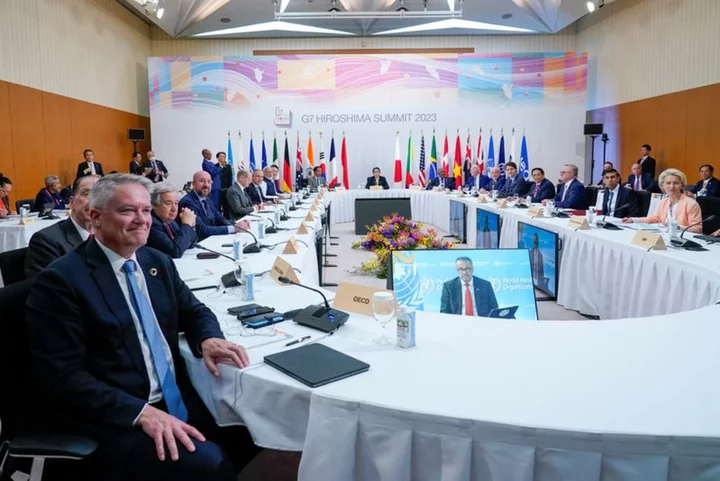By Kantaro Komiya and Supantha Mukherjee
TOKYO (Reuters) -Leaders of the Group of Seven (G7) nations on Saturday called for the development and adoption of international technical standards for trustworthy artificial intelligence (AI) as lawmakers of the rich countries focus on the new technology.
While the G7 leaders, meeting in Hiroshima, Japan, recognised that the approaches to achieving "the common vision and goal of trustworthy AI may vary", they said in a statement that "the governance of the digital economy should continue to be updated in line with our shared democratic values".
The agreement came after European Union, which is represented at the G7, inched closer this month to passing legislation to regulate AI technology, potentially the world's first comprehensive AI law.
"We want AI systems to be accurate, reliable, safe and non-discriminatory, regardless of their origin," European Commission President Ursula von der Leyen said on Friday.
The G7 leaders mentioned generative AI, the subset popularised by the ChatGPT app, saying they "need to immediately take stock of the opportunities and challenges of generative AI."
The heads of government agreed on Friday to create a ministerial forum dubbed the "Hiroshima AI process" to discuss issues around generative AI tools, such as intellectual property rights and disinformation, by the end of this year.
The summit followed a G7 digital ministers' meeting last month, where the countries - the U.S., Japan, Germany, Britain, France, Italy and Canada - said they should adopt "risk-based" AI regulation.
(Reporting by Kantaro Komiya and Supantha Mukherjee; Additional reporting by Andreas Rinke; Editing by William Mallard)









